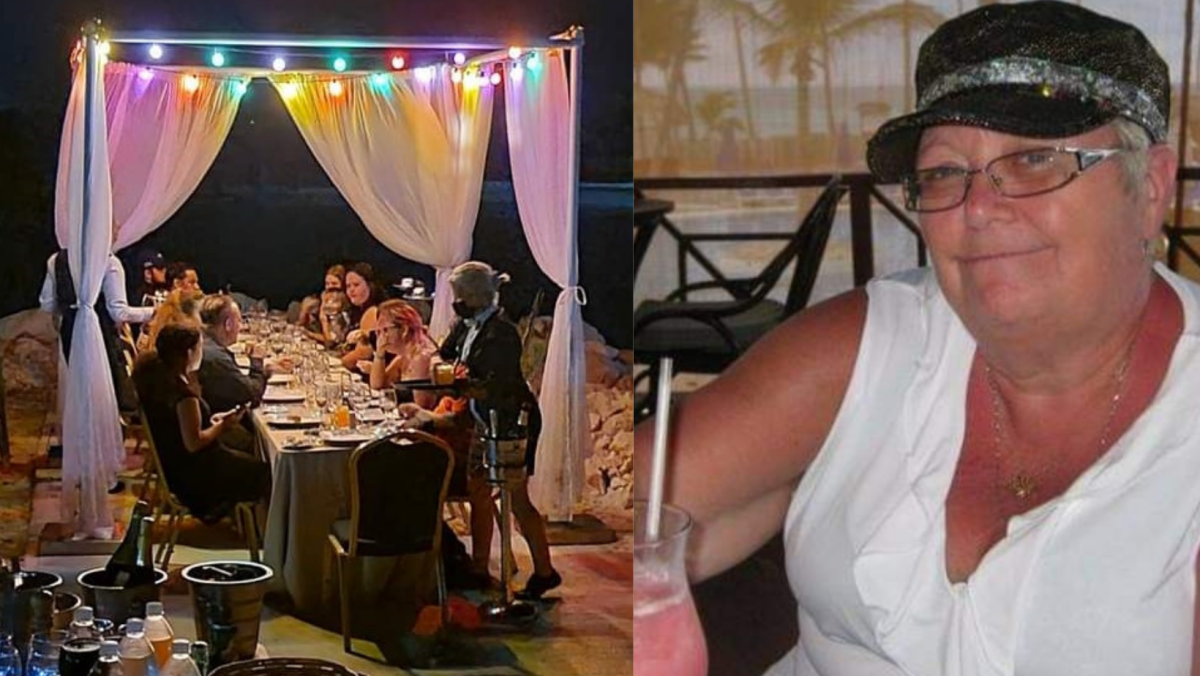Editor’s note: An earlier version of this story attributed Richard Vanderlubbe, president of tripcentral.ca, as saying insurance should be bought after departure. It has since been corrected to say insurance should be purchased before departure. An earlier version of the story also included an incorrect title for Vanderlubbe, which has since been corrected.

If Amy Zheng could go back in time, she says, she would do things differently.
Freshly double-vaccinated against COVID-19, the 28-year-old Toronto resident and her boyfriend Calvin Chan, 29, booked an all-inclusive vacation to a resort in Holguín, Cuba in May 2021. Their departure date was Dec. 10, less than a week before the Canadian government instituted an advisory against non-essential travel abroad.
“If I could go back and give myself a glimpse of what I was going into, I would have 100 per cent cancelled. It was not worth the stress,” Zheng told Global News in an interview.
She, like many other Canadians who have flown to sun destinations during the Omicron wave, tested positive while abroad and paid for it financially and emotionally. The risk calculation for flying south has changed because of how highly contagious the Omicron variant is and because different jurisdictions have their own rules, travel industry experts say.
The day before their scheduled flight home, Zheng says a member of the hotel staff came to their room and informed them that she had tested positive for COVID-19. Chan, with whom she shared a bed and spent the entire trip, was negative.
He flew back to Canada on their original return date so his job wouldn’t be affected and to take care of their dogs.
Despite her request for a retest, Zheng wasn’t given a second PCR test, which is considered to be more accurate than a rapid antigen test, for another five days. She spent that time in a “quarantine hotel,” which was decidedly less luxurious than the resort where they had spent most of the week. Zheng says drinking water was limited, there was no running hot water and the food was “indigestible.”
“I felt like I was wasting away and I had an anxiety attack every hour or so where I would break down,” she says.

Get weekly money news
Zheng emerged from self-isolation with a $588 bill for her quarantine accommodation, medical services and second PCR test, which was negative.
- Retired Quebec teacher buys winning lottery ticket at last minute, wins $40M
- N.B. election: Higgs went to ‘very dark place’ with Liberal joke, opponent says
- NDP want competition watchdog to probe potential rent-fixing by landlords
- Jasper mayor says CN Rail relocation will be devastating: ‘Deeply disappointed’
The trip was booked through Sunwing, which Zheng says has been giving them “the runaround” and it’s unclear if their travel insurance, purchased from a Canadian provider, will cover these extra costs.
Sunwing has not responded to multiple requests for comment from Global News.
Similar situations
Zheng’s experience parallels what happened to Toronto resident Cindy Norton, who flew to Holguín December 2 for an all-inclusive vacation at a different resort, also booked through Sunwing. Norton organized a group of 15 close friends and family to honour her late mother, who died in May.
“Her favourite place was Cuba,” Norton told Global News. “We decided to scatter some ashes on the beach and have seven days to recoup and give her the best sendoff that we could.”
The memorial trip took a turn for the worse when Norton’s partner, who has requested to keep his identity private for fear of reprisal at work, was informed that he had tested positive for COVID-19 during his pre-flight PCR exam.
Norton says he had no symptoms and was the only member of their group of 15 to test positive.
“It’s scary to see how many people are coming back with the same story,” she says.

Travel discussion forums and Facebook groups reveal a recent increase in the number of people recounting similar hassles, headaches and out-of-pocket costs resulting from a positive COVID-19 PCR test while overseas.
The Omicron factor
A number of airlines have recently announced plans to cut some of their scheduled flights amid the Omicron surge, further complicating travel plans for Canadians.
Air Canada, for example, said Wednesday it would reduce flights to sun destinations from Jan. 24 until April 30 “in light of the current pandemic context.”
Richard Vanderlubbe, president of tripcentral.ca and the chair of the association of Canadian Travel Agencies, tells Global News that while has not noticed “a large spike” in the number of Canadian travellers testing positive while abroad, the airline’s move doesn’t surprise him.
“It’s to be expected given the transmissibility of Omicron,” Vanderlubbe says.
His key advice to travellers is to purchase comprehensive COVID-19 coverage before departure, which should cover additional expenses.
“It’s important to deal with a travel agent because things are changing,” Vanderlubbe says. “It’s not just a matter of search online, find the lowest fare and book it. There are a lot of things to consider now.”

Understand the rules and the risks
Calgary-based Lesley Keyter, who runs The Travel Lady Agency, which she founded 26 years ago, says every individual must make their own, personalized risk assessment to determine whether or not to travel at this time.
Factors to consider include the age, health and vaccination status of all members in the travel party (children four years and younger are not eligible for vaccination). And even then, travellers should have a clear idea of what could happen if they test positive right before or during their vacation.
“It does happen, even if you’re boosted,” Keyter says. “It’s something that is going to potentially mess up your holiday.”
For re-entry into Canada, travellers aged five and up must provide proof of vaccination and either a COVID-19 negative molecular test result or a previous positive test result taken between 14 and 180 days prior to arrival.
While most resorts offer PCR testing, either internally or through a third party, the onus is on travellers to ensure they understand the procedure and added costs associated with this pre-flight requirement.
Keyter says contingency planning involves understanding exactly what the rules are at your destination, as they can differ depending on your region, resort or cruise.
Since her return to Canada, Zheng has taken to social media, including TikTok, Facebook and Instagram, to tell people about her experience. Doing so has opened her up to judgment from strangers online telling her that her choices led to her predicament. Still, she hopes her ordeal can serve as a cautionary tale.
“I put this out because I want to give people a warning. I know so many people have travel plans,” says Zheng. “If I help one person avoid going through the same situation, then I’m glad I shared my story.”















Comments